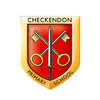Maths at Checkendon Primary School
Intent – why we teach maths
Our vision to unlock the unique voice within each child, fostering a lifelong aspiration of learning excellence, lies at the heart of the Checkendon Church of England (A) Primary School maths curriculum. Through a progressive programme of fluency, reasoning, and problem-solving using the White Rose Maths Scheme of Work, we aim to develop pupils’ confidence, resilience, and independence in mathematics within a caring Christian community.
Rooted in our values of respect, integrity, compassion, courage, and hope, we aim for every pupil to become a confident, capable, and resilient mathematician. Maths equips pupils with essential knowledge, problem-solving skills, and reasoning abilities to understand the world and make informed decisions.
Our maths curriculum is designed to:
- Build secure, deep understanding of number, measurement, geometry, and statistics, sequenced progressively from Reception to Year 6.
- Develop fluency, reasoning, and problem-solving skills across a variety of contexts.
- Encourage curiosity, logical thinking, and integrity in exploring mathematical concepts.
- Ensure all pupils, including those with SEND, EAL, or disadvantaged backgrounds, achieve success alongside their peers.
- Reflect our Christian values:
- Respect for patterns, logic, and the processes that govern the world
- Integrity in calculating, reasoning, and presenting solutions accurately
- Compassion through collaboration, explanation, and support of peers
- Courage to tackle complex problems and persevere
- Hope inspired by growth in confidence, competence, and enjoyment of maths
Maths equips pupils not only with practical skills but also with character, resilience, and confidence, preparing them to thrive across the curriculum and in daily life.
Implementation: how we teach maths
Early Maths – Reception class
- Maths is embedded in everyday learning, play, and exploration, including counting, sorting, pattern recognition, and early problem-solving.
- Children develop confidence with number and measure through structured activities and practical resources.
KS1 and KS2 progression
- We follow the White Rose Maths Scheme of Work, ensuring coherent, sequenced learning and full National Curriculum coverage.
- Lessons use the Concrete → Pictorial → Abstract (CPA) approach, allowing pupils to grasp concepts through hands-on experience, visual representation, and symbolic reasoning.
- At Checkendon, we use the “I do, We do, You do” approach to structure learning. The teacher first models problem-solving, calculation, or reasoning strategies (I do), then guides pupils through shared practice (We do), before pupils apply their learning independently (You do). This ensures all learners are scaffolded effectively, supported to develop confidence, and gradually build independence.
- Lessons are adapted to meet the needs of all pupils, using scaffolding, manipulatives, and adult support. Pupils working at greater depth are challenged with complex problems, multi-step reasoning, and investigations.
- Teachers encourage pupils to make connections between topics, apply maths in real-world contexts, and explain their reasoning with clarity.
Assessment and inclusion
- Progress is tracked using Sonar Small Steps, alongside formal White Rose assessments three times per year.
- Data is triangulated with teacher observations, work scrutiny, and pupil voice to ensure all pupils make strong progress.
- Gaps are identified and addressed promptly with interventions or enrichment opportunities.
- Staff receive CPD to ensure confident, consistent teaching of CPA, reasoning, and problem-solving skills.
Family and community engagement
- Parents engage through home activities, maths workshops, and practical problem-solving tasks.
- Pupils share learning via displays, presentations, and competitions, fostering pride, hope, and confidence.
Impact: outcomes and evidence
Academic impact
- Pupils make strong progress in fluency, reasoning, and problem-solving, monitored through Sonar Small Steps and White Rose assessments.
- National Curriculum coverage ensures pupils meet expected standards in statutory assessments, including KS1 and KS2 Maths SATs.
- Pupils with SEND, EAL, or disadvantaged backgrounds achieve progress in line with peers.
Personal development and character
- Maths nurtures resilience, logical thinking, and perseverance.
- Pupils develop courage and confidence in tackling challenges, learning from mistakes, and improving solutions.
- Pupil voice shows enjoyment, pride, and confidence in maths, reflecting growth as thinkers and learners.
Cultural and social impact
- Pupils connect maths to everyday life, the wider world, and other subjects.
- Collaboration fosters respect, teamwork, and compassion through shared problem-solving.
- Maths inspires curiosity, wonder, and purpose, reinforcing positive attitudes to learning and responsibility.
Evaluation and continuous improvement
- Data, pupil work, and feedback are reviewed termly to inform planning.
- Governors and subject leaders monitor maths across the curriculum to ensure alignment with the school’s Christian vision and Ofsted 2025 priorities:
- Quality of Education: curriculum depth, progression, CPA approach, and reasoning
- Behaviour and Attitudes: engagement, motivation, curiosity
- Personal Development: character, values, perseverance, integrity
- Leadership and Management: inclusion, staff expertise, curriculum intent
| Name | Format | ||
|---|---|---|---|
| Files | |||
| Maths I can learning statements Acorn Class.pdf | |||
| Maths I can learning statements Oak Class.pdf | |||
| Maths I can learning statements Silver Birch Class.pdf | |||
| Maths I can learning statements Willow Class.pdf | |||
| Maths progression year R to 6.pdf | |||
| PRIMARY_national_curriculum__Mathematics_220714.pdf |



